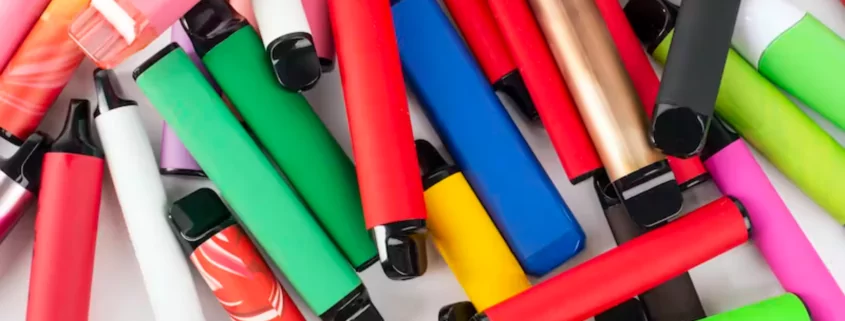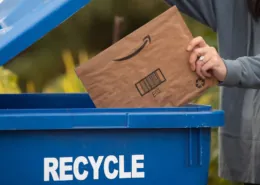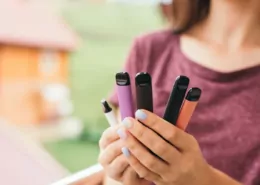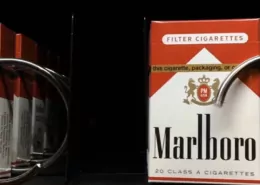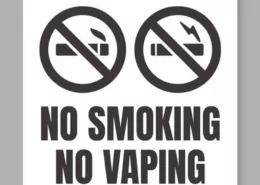South Africa’s New Vaping Tax and Its Impact on Young Smokers
Governments around the world impose excise taxes on products like alcohol and tobacco to reduce their demand. The South African government has recently implemented a tax on vaping products for the same reason. However, the new vaping tax has enraged vaping lobby groups and manufacturers who argue that e-cigarettes are less harmful than traditional cigarettes. They also claim that the tax will spawn an illicit industry, that people will go back to smoking traditional cigarettes, and that the tax will not dissuade the youth from starting vaping.In this article, we analyze the price increase claims and the effectiveness of the excise tax regime on vaping products. The Dr Yunus Carrim from Research Unit on the Economics of Excisable Products (REEP) conclude that the vaping tax is flawed because it is not well-targeted at reducing the consumption of vaping products among the youth.
The Problem with Disposable Vapes
Disposable vapes, which are closed systems thrown away once the liquid is finished, have become increasingly popular among the youth. These are not teenagers switching from smoking cigarettes to e-cigarettes, but rather teenagers who are initiating a potential lifelong addiction to nicotine through vapes. The vaping industry claims it sells only to people aged 18 and older, but this isn’t true.In 2022, a survey of nine schools in three South African provinces found that 15% of high school learners used vaping devices. The prevalence is higher among grade 11 (17%) and grade 12 learners (27%). These high prevalence rates are not surprising given that vaping devices are marketed to the youth. Vaping devices come in many shapes, flavors, and colors, and some even resemble ice lollies.
The Flaws in the Vaping Tax
The new excise tax on vaping products is not well-targeted at reducing, or preventing, the use of vaping products among youth. Young people who are starting to vape are more likely to buy disposable vapes, which attract less tax. As currently structured, the excise tax is not sufficiently targeted at reducing the consumption of vaping products among youth.The current tax on e-cigarettes yields tax burdens consistently below the tobacco tax burdens. The new tax will affect disposables the least, and e-liquids sold in large containers the most. Users of 100 ml bottles of e-liquid are likely to be seasoned vapers and are more likely to vape as an alternative to smoking cigarettes. Youths who are experimenting with or starting vaping are not likely to purchase large containers of e-liquid; they would typically start with disposable vapes. Please check the table below:
| The likely impact of the vaping excise tax on the prices of selected vaping products | |||||||
| Flavours | ml of e-liquid | Retail prices on 12 June 2023* (no excise taxes applied) | Specific excise tax (R2.90/ml) + 15% VAT on excise | Retail price with specific excise and VAT | % change in the retail price | Specific excise tax share of retail price (%) | |
| Disposables | |||||||
| Vuse Go (BAT) | 9 flavours (e.g. berry blend) | 2 | R100.00 | R6.67 | R106.67 | 7% | 6% |
| Vuse Go Max (BAT) | 9 flavours (e.g. berry watermelon) | 4.8 | R170.00 | R16.01 | R186.01 | 9% | 9% |
| AirsPops One Use (Airscream) | 28 flavours (e.g. pink crystal) | 3 | R95.00 | R10.01 | R105.01 | 11% | 10% |
| AirsPops One Use (Airscream) | 9 flavours (e.g. rose lychee) | 6 | R159.00 | R20.01 | R179.01 | 13% | 11% |
| AirsPops One Use (rechargeable) (Airscream) | 8 flavours (e.g. dragon fruit) | 12 | R249.00 | R40.02 | R289.02 | 16% | 14% |
| Nevoks Bar rechargeable (Nevoks) | Rainbow Candy Ice | 12 | R249.00 | R40.02 | R289.02 | 16% | 14% |
| BOLT (sold by Vaperite) | 15 flavours (e.g. blue energy drink) | 5 | R120.00 | R16.68 | R136.68 | 14% | 12% |
| Moti Pop (sold on Takealot) | At least 3 flavours (e.g. juicy grape). Ice lolly shape | 5 | R149.00 | R16.68 | R165.68 | 11% | 10% |
| E-liquid | |||||||
| Vuse (BAT) | 24 flavours (e.g. berry mix) | 20 | R124.95 | R66.70 | R191.65 | 53% | 35% |
| 313 Airspops (Airscream) | 22 flavours (e.g. mangolicious) | 30 | R229.00 | R100.05 | R329.05 | 44% | 30% |
| Burtz (sold by Vaperite) | 10 flavours (e.g. strawberry banana) | 30 | R180.00 | R100.05 | R280.05 | 56% | 36% |
| Burtz (sold by Vaperite) | 5 flavours (e.g. cherry berry ice) | 75 | R240.00 | R250.13 | R490.13 | 104% | 51% |
| Spook (sold by Vaperite) | 15 flavours (e.g. manic mango) | 30 | R180.00 | R100.05 | R280.05 | 56% | 36% |
| Spook (sold by Vaperite) | 16 flavours (e.g. freaky fruit) | 100 | R280.00 | R333.50 | R613.50 | 119% | 54% |
Proposed Solutions
In order to address this anomaly, Dr Yunus Carrim propose that the government should implement a minimum excise tax amount. We suggest a minimum tax amount of R50 per unit/container. Such a minimum amount would have no additional tax impact for e-liquid containers with more than 17.5 ml, but would have an impact on small-volume containers, especially disposables.Other than imposing a minimum excise tax on all vaping products, we propose that the National Treasury should, each year, increase the excise tax on e-cigarettes by the inflation rate, plus a pre-announced additional percentage. This will ensure that e-cigarettes become less affordable over time. Pre-announced tax changes are done in countries such as Australia, which increased the excise tax on cigarettes by 12.5% above the nominal increase in average wages for eight consecutive years from 2013 to 2020. Through a multi-year approach, tax increases are more predictable.
Conclusion
The vaping industry’s response to the excise tax on vaping e-liquid has been predictably fierce. By focusing only on large containers, the industry has created the impression that the tax increases will have a large impact on the prices of all vaping products. However, these large containers comprise only a modest proportion of the market. Most vaping products will experience only limited price increases under the new tax. A concern for the public health community is that vaping products that are most used by youth are subject to the lowest tax burden.South Africa does not need a new epidemic of addiction. The excise tax on vaping products will go some way to reduce the demand for these products. Unfortunately, there are flaws in the current tax system. We hope that National Treasury will address these in future Budgets.
- Is Vaping While Driving Illegal in New Mexico? - June 28, 2025
- Vaping Laws in New Mexico: Guide of Age, Flavors, Tax & Rules - June 28, 2025
- Vaping Laws in New Hampshire: A Comprehensive Guide for You - June 27, 2025

